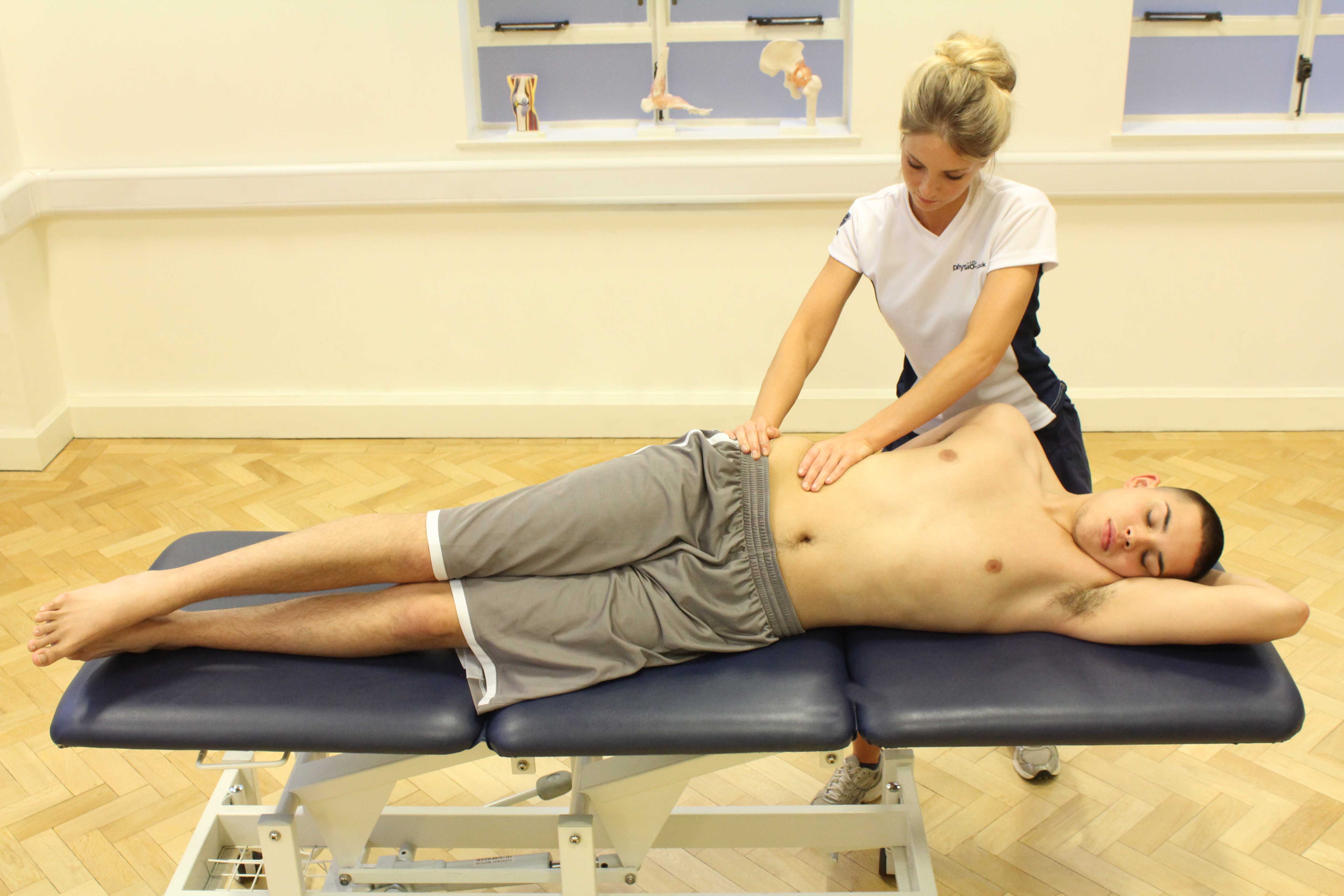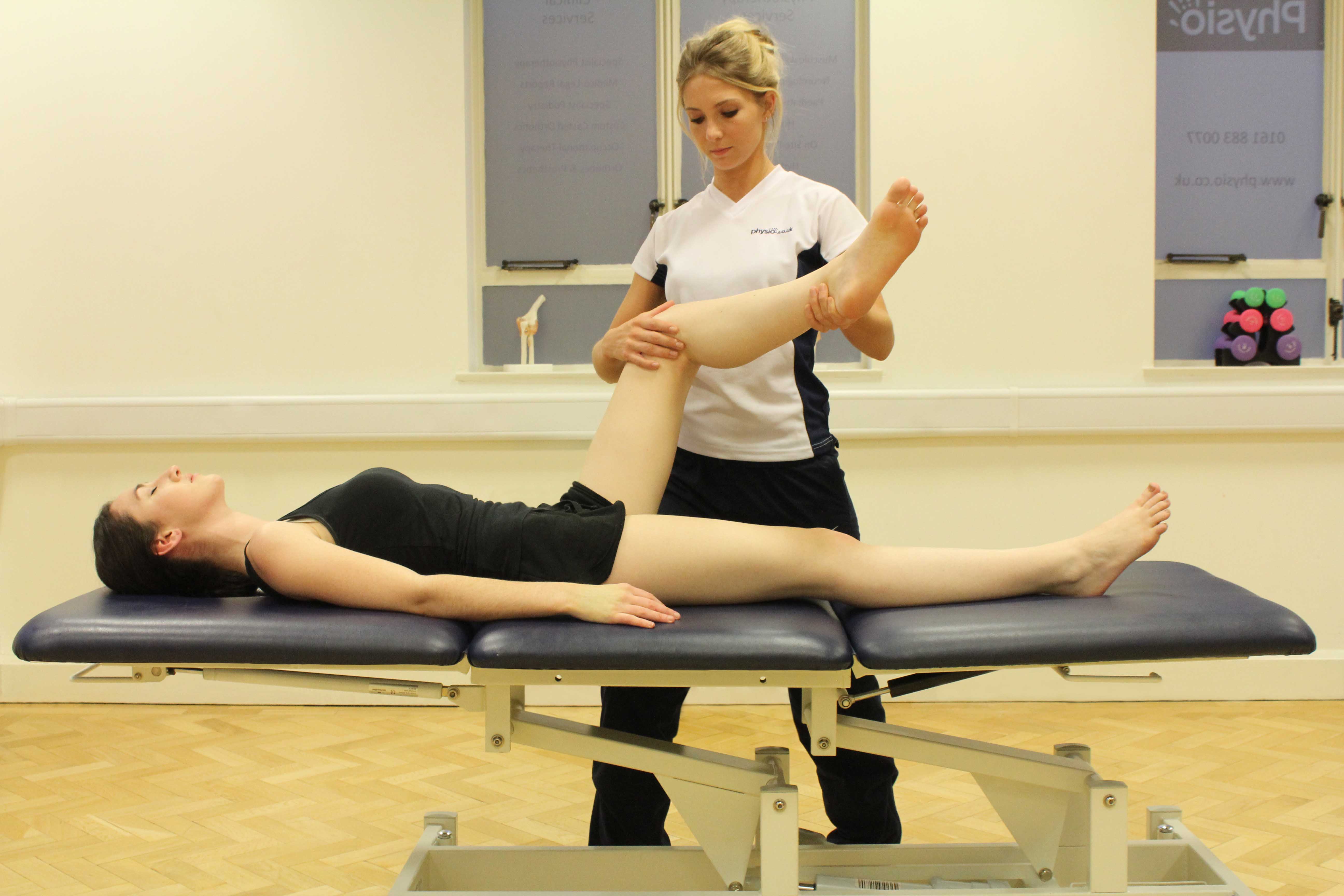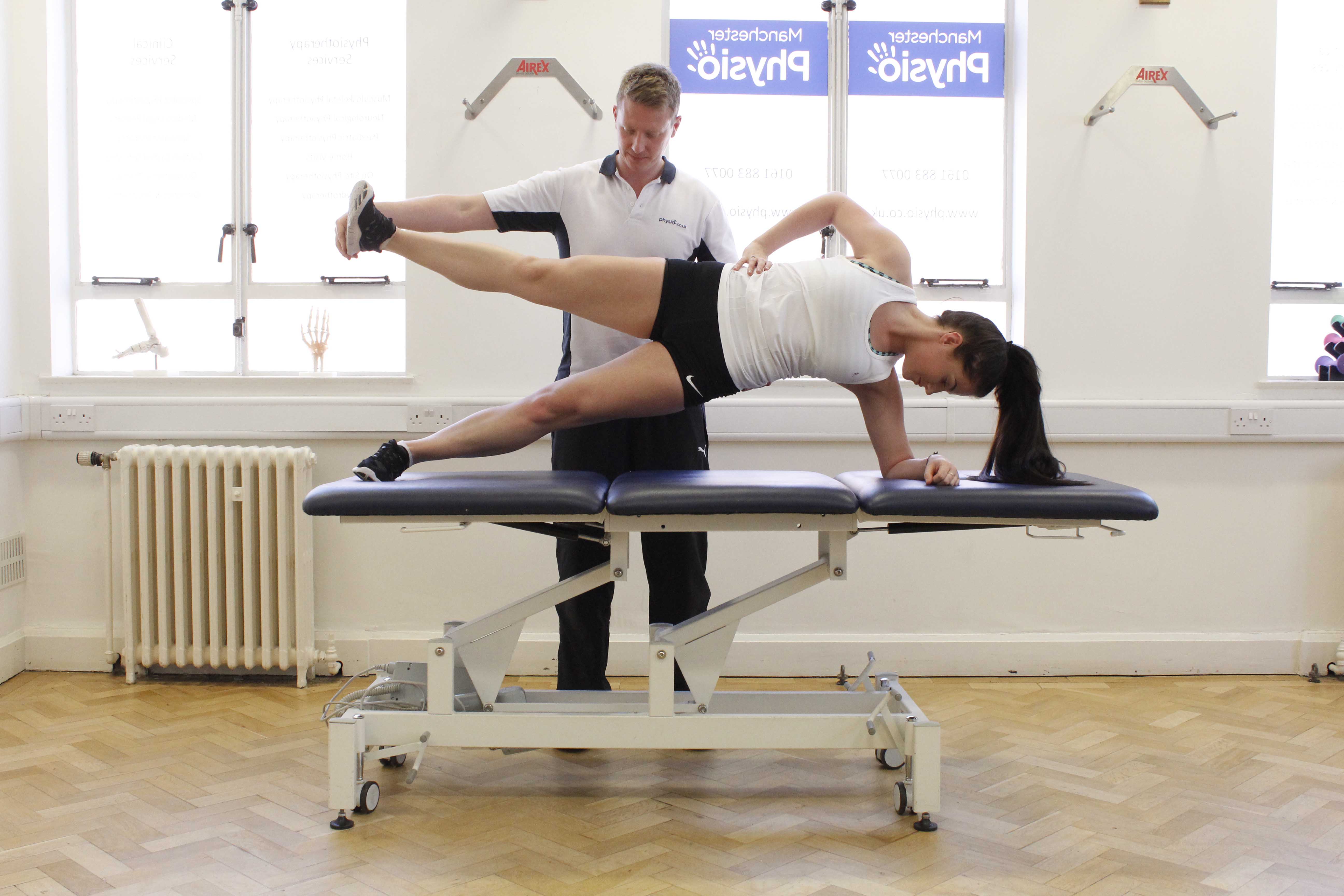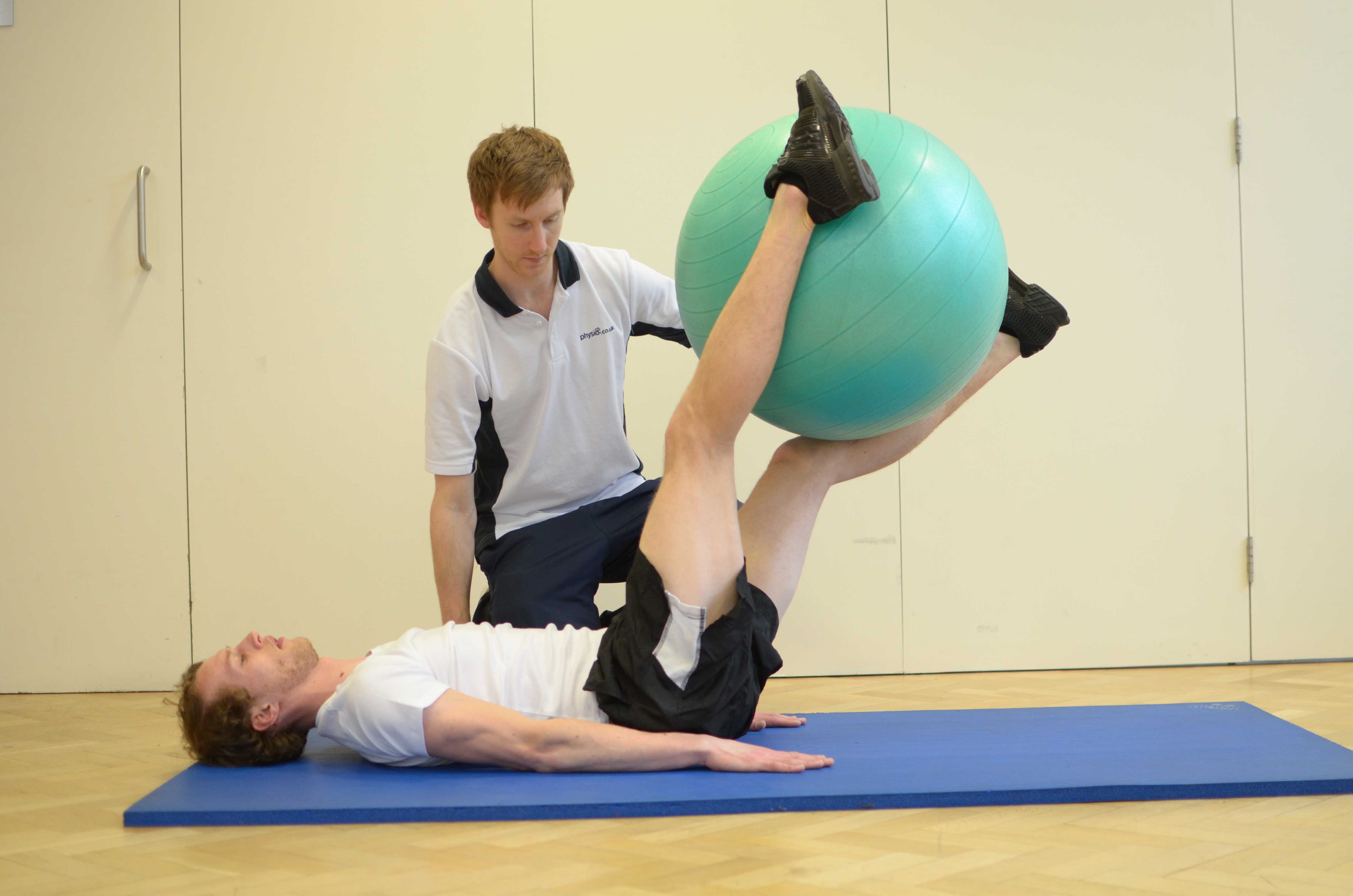 Above: Soft tisue massage of the muscles and connective tissues around the hip by specialist therapist
Above: Soft tisue massage of the muscles and connective tissues around the hip by specialist therapistWhat is a fractured hip?
A fractured hip is an umbrellaterm referring to three different types of fractures that can occur close to the hip joint. They are:
- Femoral head fracture– occurs following high impact trauma. The acetabulum (cup of the hip joint) can also acquire a fracture following this type of trauma.
- Femoral neck fracture – also known as neck of femur (NOF), intracapsular fracture or subcapital fracture.
- Subtrochanteric fracture – involves the long shaft of the femur.
 Above: Passive stretch of the muscles and connective tissues of the hip and pelvis by specialist therapist
Above: Passive stretch of the muscles and connective tissues of the hip and pelvis by specialist therapistWhat causes a fractured hip?
The main cause of a fractured hip is due to a trip or fall in people suffering from osteoarthritis. Osteoarthritis weakens the bones making their bones susceptible to crack or break with minimal trauma. Hip fractures can also occur in people who are not suffering from osteoarthritis but have been involved in a high impact collision such as a road traffic accident.
 Above: Progressive strengthening hip exercises supervised by experienced therapist
Above: Progressive strengthening hip exercises supervised by experienced therapistWhat symptoms caused by a fractured hip can physiotherapy help with?
There are many symptoms that arise following a fractured hip that physiotherapy can help with including:
- Pain
- Swelling
- Decreased range of movement
- Decreased strength
- Poor mobility
- Poor balance
- Decreased function
 Above: Progressive strengthening hip exercises supervised by experienced therapist
Above: Progressive strengthening hip exercises supervised by experienced therapistHow is a hip fracture diagnosed?
A hip fracture is diagnosed by a health professional taking a full history of the incident followed by a physical examination. An x ray will be required to confirm the findings and assess the damage, making sure surrounding structures are not damaged. If this is the case then an MRI scan may be ordered.
Medical Treatment
Depending on the findings of the x rays, surgery may be required. If so, under anaesthetic your surgeon will stabilise your fracture using various devices such as nails, plates, screws and rods. A hip replacement may be necessary if the head of the femur or the acetabulum have been severely damaged. This will all be discussed with your orthopaedic surgeon prior to surgery. If surgery is deemed too risky for the patient then a treatment calledtraction may be used to encourage the bone fragments to realign.
Bed rest may be prescribed for a few days following assistance to stand and walk. Once the fracture has healed, a rehabilitation programme may be followed.
Benefits of physiotherapy for a fractured hip?
Physiotherapy can help people suffering from a fractured hip no matter what the severity of the injury is. The focus of physiotherapy is to:
- Decrease pain levels
- Restore normal strength in muscle groups affected
- Restore normal range of movement in your joints
- Improve balance
- Return to normal function as soon as possible
What would physiotherapy treatment involve for a fractured hip?
Physiotherapy treatment for a fractured hip will depend on the patient and their specific goals. The focus initially will be on pain free exercises to maintain your flexibility, strength and balance. Hands on treatment will be introduced to help decrease pain levels and improve range of movement. The various treatment techniques may include:
- Gait practice with or without walking aids
- Massage
- Trigger point release
- Joint mobilisation
- Stretching exercises
- Strengthening exercises
- Return to pre injury function with a specific rehabilitation program.
How do I arrange a physiotherapy assessment for a fractured femur?
To arrange a physiotherapy assessment for a fractured hip with one of our physiotherapists then please email us at office@.............. Or call us on …………. to book an appointment.
Summary
A fractured hip is a very painful injury. It can severely affect your lifestyle. Physiotherapy treatment will ensure you are provided with the most relevant treatment techniques ensuring you can make the best recovery possible.
If you have a fractured femur and think that you would benefit from seeing one of our experienced physiotherapists then email us at office@physio.co.uk or call us on 0330 088 7800 to book an appointment.

 0330 088 7800
0330 088 7800


































